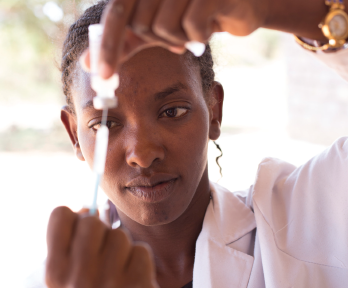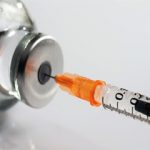
Hugh Sitton / OFFSET BY shutterstocK
CHICAGO—Keith Winthrop, MD, MPH, professor of public health and preventive medicine at the Oregon Health & Science University School of Medicine, Portland, Ore., began the vaccination session at the 2018 ACR/ARHP Annual Meeting with a review of vaccination timing and targets. He presented a clinically relevant snapshot of the vaccines rheumatologists should consider and emphasized that, in general, vaccines are underutilized in the rheumatology population. He first discussed the inactivated annual influenza vaccine, which he recommended for all rheumatological patients.
Healthcare providers have a choice of a high-dose flu vaccine or adjuvanted flu vaccine. The high-dose flu vaccine is indicated for patients older than 65 years of age. Research has shown it provides 24% greater efficacy against flu than the standard vaccine.1 Unfortunately, patients with rheumatoid arthritis (RA) may not respond as well. Nevertheless, preliminary research suggests that seroprotection with the high-dose vaccine in patients with RA is superior to the alternatives, and the argument could be made that even younger people with RA should receive the high-dose flu vaccine.
Dr. Winthrop also addressed the common concerns that immunosuppressive agents may further limit the efficacy of the vaccines. He began by reassuring the audience that most disease-modifying anti-rheumatic drugs (DMARDs) do not affect the efficacy of influenza vaccination. That said, new research indicates people who stopped methotrexate for two weeks prior to vaccination experienced superior seroprotection. Moreover, few patients with RA flared when off methotrexate, which suggests stopping methotrexate might be a nice strategy to improve seroprotection.
Dr. Winthrop described the two pneumococcal polysaccharide vaccines on the market: PPSV23, which protects against 23 types of pneumococcal bacteria, and PCV13, a conjugate vaccine that protects against 13 types of pneumococcal bacteria.
A few studies have examined seroprotection in immunosuppressed patients. Patients on tofacitinib who received PCV13 experienced a multifold titer rise.2 The same was true for patients on baricitinib, who also experienced a robust rise in antibody titer, although not as high as those on tofacitinib.3 Dr. Winthrop explained that this difference in response may be because the patients on tofacitinib were younger and had psoriasis, whereas the patients in the baricitinib study had RA and were older. Dr. Winthrop also noted that patients in these studies were likely on methotrexate, which meant they responded even though they were immunosuppressed. Despite this, he does try to suspend methotrexate before vaccinating. Dr. Winthrop concluded his talk by stating the “best time to vaccinate is when the patient is in front of you and you are thinking about it.”



